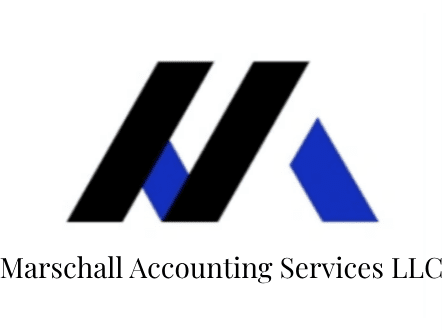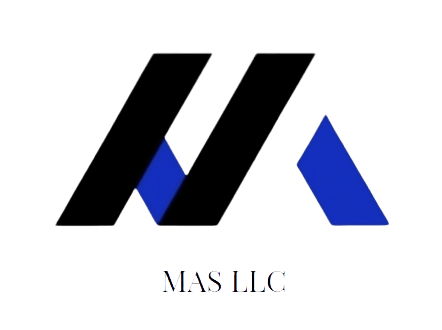Article: The Qualified Appraiser
Category: Charitable Donations
Within the industry of personal property appraisal production, many brilliant individuals utilize conservative and accurate valuation and set the standard for the industry. Unfortunately, like any financial sector, there is the potential for abuse. These abuses are typically one of two types and often a combination of both. 1) The appraiser purposefully inflates appraised values by employing methods such as: inflating quantities of materials or property donated, appraising a higher quality of material or property than what is being donated, haphazardly applying depreciation methods that produce a higher value than one utilizing the correct life of the property, including materials or property on an appraisal that did not actually transfer to a nonprofit and a myriad of additional avenues ending in misrepresentation. 2) The appraiser lacks adequate education and industry knowledge to determine valuation including the above-referenced metrics such as quantity, quality, deliverables or depreciation methods and may not ensure the donee’s inventory of accepted materials matches what has been included on the appraisal.
It is of critical importance to increase personal property appraiser standards for each interested party in the donation cycle. 1) The donor of the personal property desires an accurate valuation for their income tax return to substantiate the donation so it is not disallowed. 2) The nonprofits, government entities and other qualified receiving organizations need property donations to continue fulfilling their individual missions. 3) The United States Treasury does not want to lose large sums of tax dollars due to inflated values. 4) Environmental needs mandate promotion of reuse of materials—diverting from the landfill to donation 5) Appraisers and appraisal companies would like to work together to establish educational and best-practices as an industry and ensure only those qualified and ethical remain.
U.S. Code §170 Charitable Contributions and gifts provides details of how individuals and corporations can deduct charitable contributions on an income tax return. For donations of property (non-monetary) charitable contributions, an appraisal is required for donations over $5,000. Additionally, the appraisal must be attached to the return if it exceeds $500,000 in value. Furthermore, these appraisals must be produced by a “Qualified Appraiser” as defined below:
(E) Qualified appraisal and appraiser For purposes of this paragraph—
(i) Qualified appraisal The term “qualified appraisal” means, with respect to any property, an appraisal of such property which—
(I) is treated for purposes of this paragraph as a qualified appraisal under regulations or other guidance prescribed by the Secretary, and
(II) is conducted by a qualified appraiser in accordance with generally accepted appraisal standards and any regulations or other guidance prescribed under subclause (I).
(ii) Qualified appraiser Except as provided in clause (iii), the term “qualified appraiser” means an individual who—
(I) has earned an appraisal designation from a recognized professional appraiser organization or has otherwise met minimum education and experience requirements set forth in regulations prescribed by the Secretary,
(II) regularly performs appraisals for which the individual receives compensation, and
(III) meets such other requirements as may be prescribed by the Secretary in regulations or other guidance.
(iii) Specific appraisals An individual shall not be treated as a qualified appraiser with respect to any specific appraisal unless—
(II) the individual has not been prohibited from practicing before the Internal Revenue Service by the Secretary under section 330(c) [2] of title 31, United States Code, at any time during the 3-year period ending on the date of the appraisal.[1]
The educational and experience requirements in §170 are vague. Must an appraiser have completed college course work and if so, which courses? Must they have a degree and if so, does an Associate degree suffice or must it be a Bachelor or Master’s degree? The onus for maintaining standards appears to have been shifted to “recognized professional appraiser organizations” in some respects. Additional guidance was given in a rule by the IRS published on the federal register on July 30th, 2018.[2] The rule is entitled “Substantiation and Reporting Requirements for Cash and Noncash Charitable Contribution Deductions.” This article does not attempt to cover all provisions found within the rule and a close read is recommended to anyone within the industry seeking to gain greater knowledge on charitable contributions. However, the rule does reiterate that appraisals must follow Generally Accepted Appraisal Standards, defined as the “substance and principles of the Uniform Standards of Professional Appraisal Practice [USPAP], as developed by the Appraisal Standards Board of the Appraisal foundation.” In section D. Parity Between “Designation” and “Education and Experience,” the proposed regulations require an individual to satisfy the following requirements:
A. Successfully completed professional or college-level coursework in valuing the type of property and has two or more years of experience in valuing the type of property; or
B. Earned a recognized appraiser designation for the type of property.
Examples are given of coursework, requiring a final exam as being sufficient to meet educational requirements and it states “mere attendance at a training event is not sufficient, and evidence of successful completion of coursework is necessary under final regulations.”
The American Society of Appraisers summary of educational requirements state, “To be a “qualified appraiser,” the individual must either have a designation from a professional appraisal organization or must have completed professional or college-level coursework in valuing the type of property to be donated and have two or more years’ experience valuing that type of property.”[3] Designations from appraisal organizations in lieu of college-level course work and college graduation, in our opinion, does not benefit the industry. We hold the position that this must include a college degree. Producing statements of value for appraisals to substantiate deductions in the tens of thousands (and often hundreds of thousands) of dollars align more closely with the work performed by Certified Public Accountants, Certified Financial Planners or Chartered Financial Analyst, all of which require at least a Bachelor’s degree and a Master’s degree for a CPA. Making college completion optional can only serve to lower the barriers to entry and allow individuals who lack the robust educational experience and knowledge set only gained through college education. Professional coursework outside of the college classroom, might be a great source of learning and applicable appraisal education but those courses may not adhere to the same standards found in a college or university setting with requisite examinations and grading. Appraisal organizations could work with existing college structures to include their courses within a university online or in-person setting and achieve the same dissemination of relevant industry knowledge.
Licensure must also be considered and eventually implemented much like within the real estate appraisal industry. Membership within an appraisal organization may include rigorous standards but requiring licensure through a rigorous examination process could be key to raising the barriers to entry.
With any industry changes, education and licensure requirements could be phased in giving current appraisers adequate time for completion. However, the practice of “grandfathering” in appraisers prior to 2018 who have not completed any college course work must be eliminated. Community colleges can work with adjunct professors to provide coursework at an affordable cost and online college courses with rigorous examinations could be made available. Appraisal companies can invest in their employees by helping with or funding college course work for their appraisers. An adequate time-frame for implementation could be five years with coursework towards a degree started within one year of implementation of increased education requirements. Appraisal organizations including International Society of Appraisers (ISA), American Society of Appraisers (ASA) and Appraisers Association of America (AAA) could provide both college coursework as well as co-write the licensing exam. Current examinations and produced appraisals for review are often completed remotely increasing the propensity for cheating. A proctored and in-person licensing exam would be mandatory.
As we push forward with our mission towards increased waste diversion, we will work closely with industry leaders sharing these goals. We will petition the IRS Commissioner, Secretary of the Treasury and the Chief Counsel as well as members of Congress to help support and enact changes. As a bipartisan issue, we expect support from many sharing our goal of increasing standards for what constitutes a “Qualified Appraiser.”




